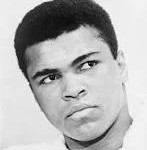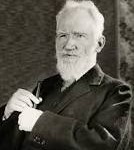By Myra Chanin
As anyone who knows me can attest, kind words do not flow from my lips, but neither does printed theater bile usually flow from my positive rather than poison pen. Because I love theatre, I find damning the lower end of its bell-shaped curve an inferior undertaking that involves ugh! too many Thesaurus stop-offs. I prefer to spread the news of what I — and usually my fellow audience members — enjoyed. Let the lemmings fall at the feet of disgruntled, detached from reality, New York Times reviewers. Follow me, Off-Broadway’s Numero Uno Theater Yenta, to stuff that’s a lot better and costs a lot less at locations that are 2-9 minutes on foot from an F Train stop.
Last month, my most unforgettable personal favorite was Will Powers’ Fetch Clay,
Make Man, at the New York Theater Workshop, a first class company in the East
Village that’s a 9-minute walk according to www.hopstop.com from an F train
stop. The playwright, Will Power – is that a name you give yourself or what? —
became so fascinated by a photograph of Muhammad Ali and Stepin Fetchit
sitting neck and neck before the second Ali-Sonny Liston 2nd World Heavyweight
championship re-match, that he researched the camaraderie and turned it into a
fascinating study of friendship, fear and fantasy. To see the actual photo that
inspired such power in Will Power, Google “Stepin Fetchit Muhammad Ali
photos.”
Ali, by that time a Nation of Islam convert, identified with Jack Johnson, the first black Heavyweight World Champion, who’d refused to hide his real self from the white world, mocked racial taboos, married white women, “taunted his betters” and met his come-uppance under the Mann Act for transporting a white prostitute across a state line for immoral purposes. Imagine that! This conviction did not permit him to do what he did best, pummel rivals at the peak of his prowess. Uppity Jack skipped bail, moved to Europe, returning to serve out his sentence in order to defeat a slew of Great White Hopes, including former champ Jim Jeffries who after four rounds admitted that even in his prime he’d been no match for Johnson.
Muhammad Ali was Johnson’s spiritual son. The first modern sports celebrity, Ali embraced racial pride and talked about whatever he liked. He also refused to serve in the Vietnam War, an act which so enraged the powers that were that they stripped Ali of his title and took away his boxing license. .
Since Ali and Johnson were both alive only between 1942 and 1946, what in the world could have connected them? Would you believe Lincoln Theodore Monroe Andrew Perry aka Stepin Fetchit, the black comedian whose movie portrayals of a lazy, sly, no account, shiftless, black stereotype, rewarded him with Hollywood fame and fortune as the first black actor to receive a screen credit and paid him a higher annual salary during the depression than the President of the United States received.
Because Perry and Johnson had been friends, Ali got the notion that Perry knew the secret behind Johnson’s knockout Anchor Punch, invited Perry to his training camp and made him his special strategist, hoping to trade some of Ali’s media access which would give Perry the opportunity to change people’s negative perception of Stepin Fetchit, in exchange for Johnson’s secret know-how.
Fetch Clay, Make Man, the Anchor Punch of Parker’s creative intelligence and imagination, is the stunning result, a study of illusion vs. reality and slavery vs. freedom. Power presents each character as a multifaceted individual whose public facade masks inner fears. Ali (Ray Fisher) worries about losing, fears being assassinated and finds himself enslaved by the religion he thought would free him. Perry (K. Todd Freeman), an articulate, literate, shrewd man whose life is lived under Stepin Fetchit’s oppressive shadow, longs to present his alter ego as a subversive, revolutionary force. Sonje (Nikki M. James), Ali’s first wife, longs for transparency and refuses to conceal her “self-supporting” party girl/cocktail waitress past under the illusion of Islam garments. The entire cast is brilliantly directed by Des McAnuff.
Which, if any, of Johnson’s secrets does Ali wheedle out of Perry? All of them. How to fight with patience, change his style, master details, act out both winning and losing to give himself strength. And as for the secret of Johnson’s Anchor Punch, Perry teaching Ali to use the power of his past to power his triumph over Sonny Liston in the first round of their bout provides a grand emotional knockout climax to Power’s play.
Fetch Clay, Make Man is superbly written, acted and directed. It’s a first rate theatrical presentation and was totally appreciated by an enthralled cheering audience at the New York Theater Workshop which consistently presents amazing work, well worth going out of your way to see.
I was also differently delighted by The Pearl Theater’s captivating revival of George Bernard Shaw’s You Never Can Tell, an homage to my favorite play in the entire world, The Importance of Being Earnest. Same period. Same costumes. A bossy yet feminist manifesto producing Lady Bracknell. A not-quite-missing father. Same flibbertigibbetty society kids. An impoverished, fortune-hunting dentist as a romantic lead which is better than having him screw up your uppers. Can you imagine what Wilde could have done with him!
Shaw is talkier – ideas, ideas – not as witty as Wilde, yet wild enough to have the audience laughing out loud, but admittedly no one cackled quite as loudly as I did. The acting was stylishly swell, scene after scene totally stolen by a father and child duo: the lower class perfect waiter, played by Dan Daily, and his top-hatted, know-it-all lawyer-son, played by Zachary Spicer, who after proudly triumphing over his station, knows he knows the truth and has no qualms about telling everyone what to do.
One caveat. You never can tell if You Never Can Tell will be as enthralling to everyone as it was to me. Four people in the row behind me disappeared during the intermission. I guess they prefer drivel to philosophy.
To see how Reggie Jackson will fit into this, see next month’s column!




















